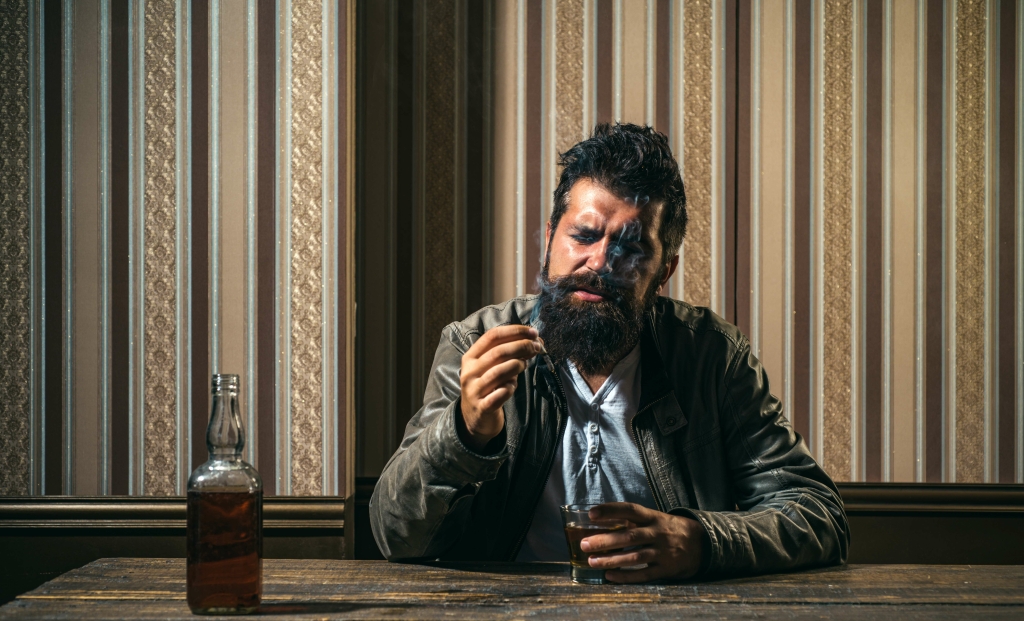Is Cannabidiol Addictive? The Truth About CBD and Addiction
CBD doesn’t contain tetrahydrocannabinol (THC), the psychoactive ingredient found in marijuana that produces a high. The usual CBD formulation is oil, but CBD is also sold as an extract, a vaporized liquid and an oil-based capsule. Food, drinks and beauty products are among the many CBD-infused products available online. CDC released a Health Alert Network (HAN) Health Advisory in 2021 to inform consumers that CBD can be synthetically converted into Delta-8 THC, which is psychoactive and not well understood.

An enhancement in the right CA1 volume over the trial was found mainly in heavy users. The plasma concentration of CBD also correlated with right subicular complex and total right HIP growth in heavy users (Beale et al., 2018) (Table 2). In CPP paradigm studies, repeated CBD injection (10 and 20 mg/kg) reduced cocaine (10 or 15 mg/kg)-induced CPP (Chesworth and Karl, 2020; Luján et al., 2018) without any effect on behavioral sensitization in mice (Luján et al., 2018).
Health Canada
What causes drug and alcohol dependence is a question that has puzzled scientists for many years. Addiction is a complex condition with a psychological and physiological need to seek out certain substances or behaviors despite harmful consequences. Cannibinoids work in the body by binding to certain receptors, either CB1 or CB2. CBD is thought to bind to CB2 receptors, which are more common throughout the immune system than CB1 receptors, which are more specific to the central and peripheral nervous system. Whether you plan to use CBD to support general health or as a natural aid in your recovery process, you can do it with confidence, knowing that it is a non-addictive and legal substance throughout the United States. Over-the-counter CBD is indicated for healthy adults ages 18 years and older.
- Repeated treatment with CBD (20 mg/kg, i.p.) blunted the motor behavioral response induced by a challenge dose of cocaine plus caffeine (Prieto et al., 2020).
- A study published in Addictive Behaviors showed that it could be a potent treatment option for nicotine addiction.
- These particular findings correlated with increased plasma concentration of CBD (Solowij et al., 2018).
- Unlike the other cannabinoid, THC, CBD doesn’t have intoxicating properties, so it won’t get you high in a way that THC in marijuana does.
- There have been no recorded deaths from using these drugs, and it is not possible to overdose.
- Here we summarize findings about the effects of chronic cannabis use on these circuits.
But taking more than what your body produces can cause you to be sleepy or mentally and physically slow the next day. You should start off with a dose between 0.2 and 0.5 mg and never take a dose higher than 10 mg. But if you suffer from chronic insomnia, before you turn to CBD it’s time is cannabidiol addictive to make an appointment with your physician. He or she might suggest a more proven treatment called cognitive behavioral therapy, which helps focus on behavior that can improve your sleep. Like any other drug taken for a prolonged time, Cannabinoids can impact your body in a negative way.
Role of Cannabidiol in the Therapeutic Intervention for Substance Use Disorders
Third, the effects of CBD on alcohol relapse were also analyzed in the oral ethanol SA paradigm with some modifications. The administration of CBD (120 mg/kg, i.p.) significantly reduced the number of active lever presses and ethanol intake during relapsing conditions. Importantly, these effects were accompanied by changes on the relative gene expression (RT-PCR) of selected dopaminergic, opioidergic and cannabinoid targets. Briefly, CBD induced a down-regulation of TH in the VTA and MOR, CB1R and G-protein coupled receptor 55 (GPR55) gene expressions in the NAcc whereas CB2R mRNA levels were increased in the NAcc (Viudez-Martínez et al., 2018a). In addition, CBD fully reversed the high impulsivity level showed by rats with an EtOH dependence history (Gonzalez-Cuevas et al., 2018). On the other hand, the effects of CBD alone or in combination with THC (2.5 mg/kg each, i.p., 4 days) on ethanol-induced locomotor sensitization were also evaluated in DBA/2 mice.
However, it is important to note that many CBD products may contain some level of THC. Federal law requires that hemp-derived CBD products contain less than 0.3% of THC. Drug addiction is defined as a compulsive need to use a substance and an inability to stop using it despite negative consequences. You might have this condition if smoking marijuana causes physical, emotional, or social problems. We also know that a lot of the treatments that we have are not particularly effective,” said Tabashneck, senior fellow of law and applied neuroscience, a collaboration between the Center for Law, Brain & Behavior and the Petrie-Flom Center.
Health & Wellness
Activation of presynaptic CB1 receptors inhibits glutamate transmission onto GABAergic cells in the PFC, reducing the function of inhibitory prefrontal circuits. Therefore, hyperactivation by exogenous cannabinoids during development could disrupt the maturation of GABAergic interneurons in the PFC and desynchronize PFC circuits (Caballero and Tseng 2012). Thus, adolescent cannabis use may affect brain development and result in enduring alterations in the GABA/glutamate balance in the PFC (Renard et al. 2016).
Hemp contains higher levels of CBD and little THC, which is why most CBD is made from hemp crops. The Food and Drug Administration (FDA) recently approved Epidiolex, the first high-potency CBD drug to treat seizure disorders. CBD capsules and pills can be used for the systemic treatment of https://ecosoberhouse.com/article/alcoholic-liver-disease-symptom-and-treatment/ seizure disorders and digestive issues. These include nausea, irritability, sleepiness, or increased thoughts or behaviors related to suicide. CBD may also interact with certain serotonin or opioid receptors and may stimulate a process that decreases cholesterol and blood sugar levels.
